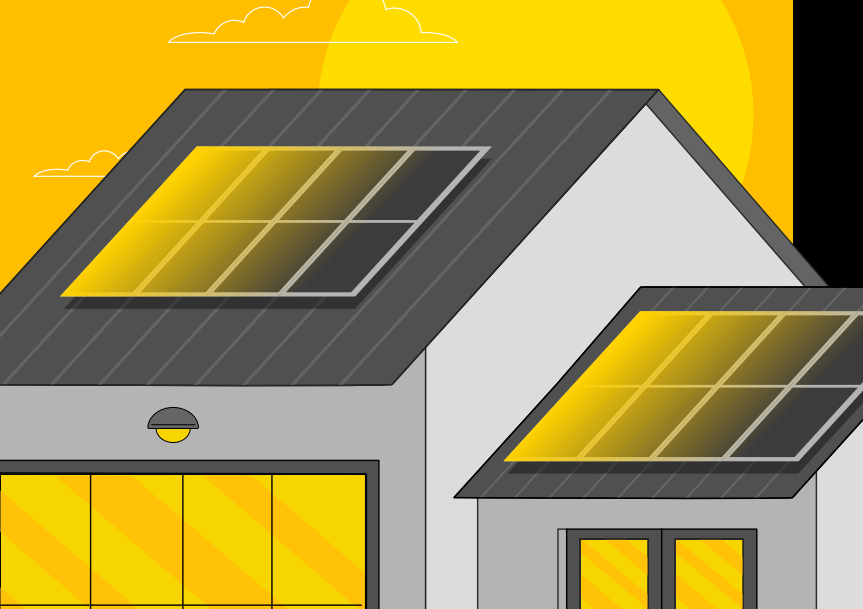Energy
Solar drives evolution
of renewables
GoSolr’s new quarterly report highlights SA’s shift toward a more sustainable and decentralised power grid, writes JASON BANNIER.
Despite electricity challenges posed by inconsistent regulations and reliance on coal in South Africa, the country’s solar industry is steadily reshaping the energy landscape.
This evolution has been unpacked by GoSolr, a leading provider of residential subscription solar solutions solar, in the third edition of its Light Paper report (October 2024), released this week in Johannesburg. The Quarterly Solar Update highlights how solar energy is driving savings for households and businesses while contributing to the country’s renewable energy goals to reduce climate change.
Saving money and the environment
Previously seen as a fallback during load shedding, the mindset towards solar energy has shifted.
“We are moving out of the solar as a backup, which was what everyone did in 2022/2023,” says Andrew Middleton, co-founder and CEO of GoSolr.
“Where we are with pricing, Eskom, and the cost of solar, people are now going to start to reliably save money. It means the difference between an extra meal or not or buying extra data for education and communication. Putting money back into people’s households is really going to be the big driver.”
Middleton says it will take time and education for most communities to adopt a sustainability mindset, likely spanning generations. Although people may notice environmental changes, the immediate priority of maintaining electricity and providing for basic needs often takes precedence.
“The younger generations are globally aware. Interestingly, a lot of the wildlife lodges we talk to now – they’re not getting tourists if they’re not green. What’s happening globally is filtering down – Americans, Europeans, are not going to travel here if they don’t stay in a five-star green building, or a bush lodge that is off the grid.”
He highlighted the threat of globally warning, and the severe effects if the planet’s temperature were to increases by 2 degrees Celsius. This included severe heatwave exposure, increased water scarcity, and a loss of species.

Photo: JASON BANNIER.
Middleton says that SA will eventually adapt to the global shift toward sustainability, though it will take time. As the world increasingly uses incentives and penalties to curb pollution, policies like the carbon border adjustment mechanism will influence trade. Products made with coal will see less demand, and failing to align with these global changes could isolate the country from international markets. Despite any resistance, he believes this transition is inevitable, but it will be a gradual process.
Renewable energy vs coal dependency
The path to a fully renewable energy grid is not without obstacles. SA continues to rely heavily on coal, which accounts for most of the country’s electricity generation mix, 85,3%. In comparison, solar, which is the second highest of the mix, is at 6,2%.

Despite this, Middleton says that renewable energy, particularly solar, is continuing to be adopted locally.
“2023 is the tipping point. A lot of energy experts think it is the peak of our energy production emissions. From now onwards, the use of fossil fuels to produce energy is going to decrease, and the 30% of global electricity generated by renewables is going to continue to increase.”
This global shift is putting pressure on SA to accelerate its transition to renewables and reduce its carbon footprint.
Regulatory challenges in the solar sector
One of the key barriers to faster adoption of solar energy in SA is the regulatory landscape. Namely, the “patchwork policy problem” – where differing policies across the country’s municipalities create confusion for solar providers and consumers.
“We’ve always been advocating for an overarching set of rules for solar, and then let’s, let everyone understand and have clear transparency on what is required in order to have private solar connected,” Middleton said.
He addressed the need for a more unified regulatory framework to streamline the process of solar installations, making it easier for both households and businesses to adopt renewable energy solutions.
Solar as a pillar of future renewables
Despite the challenges, the outlook for solar energy remains optimistic. Although 2024 has seen a slowdown compared to the exceptional growth of the previous year, solar continues to expand its footprint.
Middleton told Gadget: “The interests that we’ve had this year has been consistent with last year. We’ve had the same traffic through the website, the same lead generation calls. It’s just a much slower cycle.
“Last year it was an urgent purchase needed. Now, there’s a lot more about understanding the long-term benefits. The households have a lot more time to make the decision. Our view is: it’s not a question of ‘if’, it’s ‘when’, but it’s a slower sales cycle.”
GoSolr’s new report calls for continued innovation in solar technology and policy reform, stressing that renewable energy will be essential in securing a sustainable and affordable energy future for SA. The report highlights the broader global context, where renewable energy is increasingly seen as a key driver in combating climate change.
* Read GoSolr’s “Light Paper” Quarterly Solar Update (October 2024) here.
* Jason Bannier is a data analyst at World Wide Worx and writer for Gadget.co.za. Follow him on Twitter and Threads at @jas2bann.


















